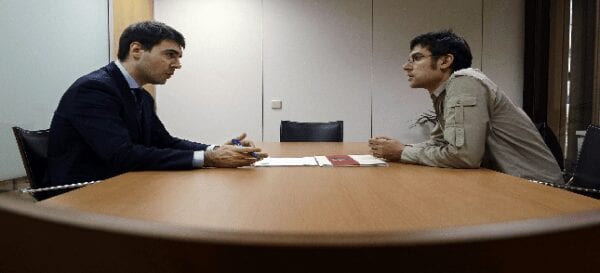The interview is a very important stage in every recruitment process. It is perhaps the first time an employer meets with the prospective employee. Before a candidate can be contacted for an oral interview, there may have been some pre-test and aptitude test screening exercises which the candidate may have passed.
Being a participant in a job interview is very expectant and the job seeker feels he or she is getting closer to the job. It is equally the most competitive stage of the selection process because it is a contest involving the best.
Most time interview candidates out of anxiety have had to make enquiries about likely questions to be expected. But unlike the aptitude test that a uniform test is used to access candidates, the interview questions are intuitive in nature. What this means is that there are no concrete and universal questions in an interview. Most interviewers ask questions based on what a candidate have on the CV and credentials and as their mind leads.
Human resource representatives have various criteria they use in making the final selection. The difference maker in the interview process lies on the candidates’ confidence, choice of words, body language, eye contact and adequate knowledge about the job roles.
But before the interview, one question job seekers hardly ask themselves is this: can I really do the job? Do I have what it takes to be the employer’s choice? A critical study and enquiry into what the job requires can help in making this judgement.
The employer only have one objective in mind in calling for the interview, and that is to find the best candidate that can do the job. Sometimes the job functions in the advertised vacancy (if any) is not exhaustive. Making further enquiry for the details of the job requirement will better position a candidate in outperforming others.
Knowing what is expected of you, and having what it takes to perform is what can give a candidate a competitive advantage because the questions the interviewer will mostly likely ask will have to do with accessing whether the candidate have what it takes to get the job done.
Emphasis should be placed on the job requirements more than anticipating likely interview questions. You may not be faced with same question the very next person exiting the interview room was asked. This is because of the intuitive nature of the interview process. This is why it is better to find out everything about the job function before the interview date.
Having known what the job requires, put yourself in the shoes of your interviewer and personally access yourself using the facts on ground about the job requirements. This method have worked almost always because your knowledge about the job places you in good confidence and boldness.
Care should be taken when exuding your knowledge and confidence to avoid bias and sending wrong message by appearing too good. Keep it moderate and objective maintaining good eye contact and body language complimenting it with correct English Grammar.
Successful candidates knows their fate after the interview session, at least those with good knowledge and confidence. But there are many factors that comes into play behind the scene, although it is not a rocket science and at the end of the day someone will have the job and by following these steps and taking some extra measures, that someone will have to be you.
- How to get a banking job in Nigeria
- HOW TO GET A BANK TELLER JOB IN ANY NIGERIAN BANK
- Job Scam Alert: Nigeria Custom Recruitment Fraud Uncovered
- Account opening requirements for tier three kyc
- Where do you see yourself in five years?
- How to open a business account in Nigerian Banks
- How to open a business account in Nigerian Banks
- 2017 Batch ‘A’ Mobilization Exercise: Live Tweet Chat With Nysc Directors
- Consider these factors before taking up that job
- How to succeed as a contract staff in nigerian banks



